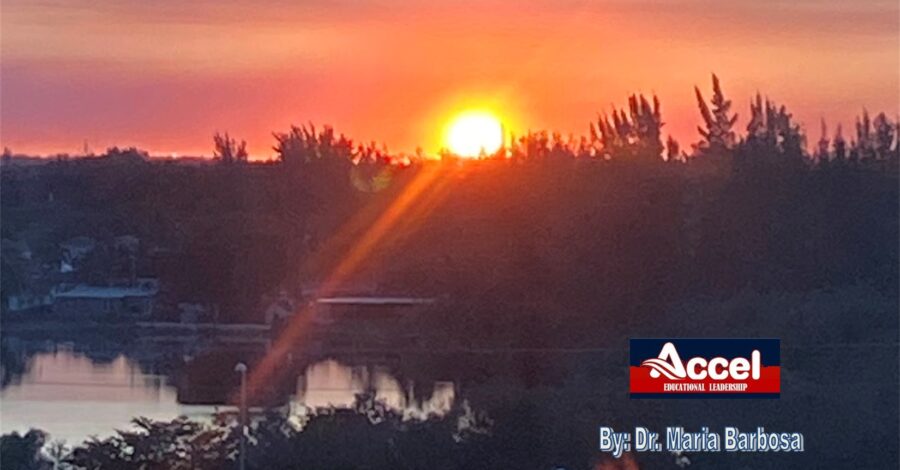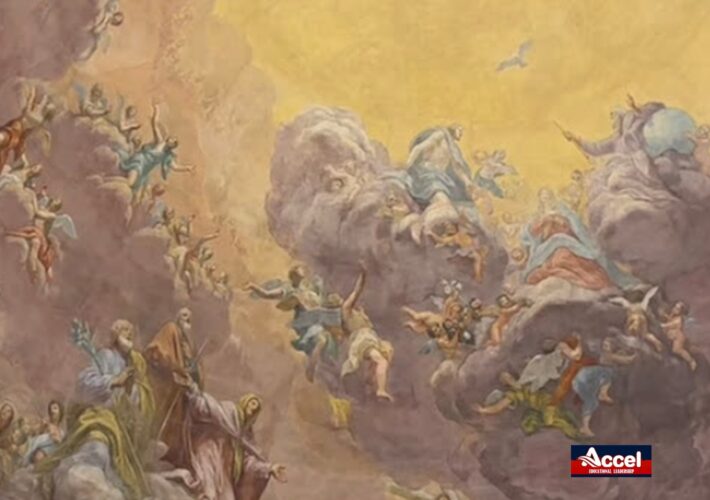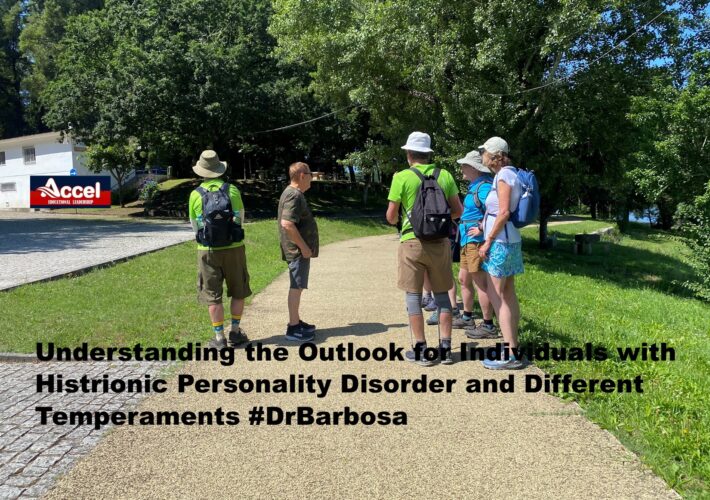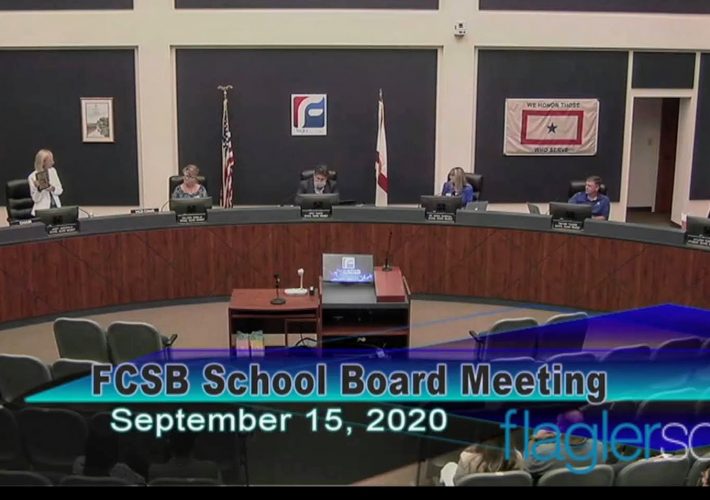Many people pray for the kingdom of God to come. But have us ever stopped to think about what the Kingdom of God is and what it will do?
The concept of the Kingdom of God is a central theme in many religious traditions, particularly in Christianity. It represents the reign or rule of God over all things, both in a spiritual and, for some believers, a future literal sense. Understanding the Kingdom of God can vary between different theological perspectives, but here is a general overview:
- Spiritual Kingdom: In Christian theology, the Kingdom of God is often understood as a spiritual reality. It refers to the presence and rule of God in the hearts and lives of believers. It’s seen as a state of righteousness, peace, and joy in the Holy Spirit, as mentioned in the New Testament (Romans 14:17).
- Future Kingdom: Many Christians also believe in a future, eschatological Kingdom of God. This perspective holds that there will be a time when God’s rule will be fully established on Earth, often associated with the Second Coming of Jesus Christ. This future Kingdom is expected to bring about the complete transformation of the world, eliminating sin and suffering.
- Praying for the Kingdom: When people pray for the Kingdom of God to come, they are often expressing a desire for God’s will to be done on Earth as it is in heaven, as taught in the Lord’s Prayer (Matthew 6:10). This prayer is an acknowledgment of God’s sovereignty and a plea for His guidance and influence in their lives and in the world.
- Kingdom Values: The Kingdom of God is also associated with certain values and principles, such as love, compassion, justice, and mercy. Believers are encouraged to live according to these values and actively work to bring about positive change in the world.
- Parables and Teachings: Jesus frequently used parables and teachings to illustrate the nature of the Kingdom of God. For example, the Parable of the Mustard Seed and the Parable of the Yeast emphasize the small beginnings and transformative power of God’s Kingdom (Matthew 13:31-33).
In the Bible, there are several prophecies and passages that are interpreted by some as pointing to the identity of the future King of the Kingdom of God. These passages have been a source of theological discussion and interpretation in various Christian traditions. Here are a few key verses often cited in this context:
- Messianic Prophecies: Many Old Testament prophecies are seen as pointing to the Messiah, who is believed by Christians to be the future King of the Kingdom of God. These include passages from the books of Isaiah, Micah, and Zechariah, among others. For example, Isaiah 9:6-7 says:”For to us a child is born, to us a son is given; and the government shall be upon his shoulder, and his name shall be called Wonderful Counselor, Mighty God, Everlasting Father, Prince of Peace. Of the increase of his government and of peace there will be no end…”
- Psalm 110: Psalm 110 is often cited as a messianic prophecy, where the Messiah is portrayed as both a King and a Priest: “The LORD says to my Lord: ‘Sit at my right hand until I make your enemies a footstool for your feet.'”
- Daniel 7:13-14: In the Book of Daniel, there is a vision of “one like a son of man” who is given dominion and an everlasting kingdom: “And to him was given dominion and glory and a kingdom, that all peoples, nations, and languages should serve him; his dominion is an everlasting dominion, which shall not pass away, and his kingdom one that shall not be destroyed.”
- Matthew 16:16-17: In the New Testament, Peter’s confession that Jesus is the Christ, the Son of the living God, is seen as a significant declaration of Jesus’ identity as the King of the Kingdom of God.
- Revelation 19:16: In the book of Revelation, Jesus is described as the King of kings and Lord of lords: “On his robe and on his thigh he has a name written, King of kings and Lord of lords.”
In summary, the Kingdom of God can be understood both as a spiritual reality in the hearts of believers and as a future hope for the complete establishment of God’s rule on Earth. Praying for the Kingdom of God to come is a way for believers to express their longing for God’s presence and guidance in their lives and a desire to see a world filled with His righteousness and peace. It is a concept rich in symbolism and theological significance in various religious traditions, particularly Christianity.
Our Father, Who art in heaven,
Hallowed be Thy Name.
Thy Kingdom come.
Thy Will be done,
on earth as it is in Heaven.
Give us this day our daily bread.
And forgive us our trespasses,
as we forgive those who trespass against us.
And lead us not into temptation,
but deliver us from evil. Amen.
The “Our Father” prayer, also known as the Lord’s Prayer, is a foundational Christian prayer that can be found in the Bible in the book of Matthew (Matthew 6:9-13) and in the book of Luke (Luke 11:2-4). It is a model prayer that Jesus gave to His followers, and it serves as a guide for how Christians can approach God in prayer. The prayer begins with the words “Our Father,” and it addresses God as a loving and caring Father in heaven. It covers various aspects of prayer, including adoration, supplication, and confession, and it is a central part of Christian worship and personal devotion.
O que é o Reino de Deus?
O conceito do Reino de Deus é um tema central em muitas tradições religiosas, especialmente no Cristianismo. Ele representa o domínio ou governo de Deus sobre todas as coisas, tanto em um sentido espiritual como, para alguns crentes, em um sentido literal futuro. A compreensão do Reino de Deus pode variar entre diferentes perspectivas teológicas, mas aqui está uma visão geral:
Reino Espiritual: Na teologia cristã, o Reino de Deus é frequentemente entendido como uma realidade espiritual. Ele se refere à presença e ao governo de Deus nos corações e vidas dos crentes. É visto como um estado de justiça, paz e alegria no Espírito Santo, conforme mencionado no Novo Testamento (Romanos 14:17).
Reino Futuro: Muitos cristãos também acreditam em um Reino futuro, escatológico, de Deus. Essa perspectiva sustenta que haverá um momento em que o governo de Deus será totalmente estabelecido na Terra, frequentemente associado à Segunda Vinda de Jesus Cristo. Este Reino futuro é esperado para trazer a transformação completa do mundo, eliminando o pecado e o sofrimento.
Orando pelo Reino: Quando as pessoas oram para que o Reino de Deus venha, frequentemente estão expressando o desejo de que a vontade de Deus seja feita na Terra, assim como é feita no céu, conforme ensinado na Oração do Senhor (Mateus 6:10). Esta oração é um reconhecimento da soberania de Deus e um pedido por Sua orientação e influência em suas vidas e no mundo.
Valores do Reino: O Reino de Deus também está associado a certos valores e princípios, como amor, compaixão, justiça e misericórdia. Encoraja-se os crentes a viverem de acordo com esses valores e a trabalhar ativamente para promover mudanças positivas no mundo.
Parábolas e Ensinos: Jesus frequentemente usava parábolas e ensinamentos para ilustrar a natureza do Reino de Deus. Por exemplo, a Parábola do Grão de Mostarda e a Parábola do Fermento enfatizam os modestos começos e o poder transformador do Reino de Deus (Mateus 13:31-33).
Na Bíblia, encontramos diversas profecias e passagens que são interpretadas por alguns como apontando para a identidade do futuro Rei do Reino de Deus. Essas passagens têm sido fonte de discussão teológica e interpretação em várias tradições cristãs. Aqui estão algumas das principais passagens frequentemente citadas nesse contexto:
Profecias Messiânicas: Muitas profecias do Antigo Testamento são vistas como apontando para o Messias, a quem os cristãos acreditam ser o futuro Rei do Reino de Deus. Estas incluem passagens dos livros de Isaías, Miquéias e Zacarias, entre outros. Por exemplo, Isaías 9:6-7 diz:
“Porque um menino nos nasceu, um filho se nos deu; e o governo estará sobre os seus ombros; e o seu nome será: Maravilhoso Conselheiro, Deus Forte, Pai da Eternidade, Príncipe da Paz; do aumento deste governo e da paz não haverá fim…”
Salmo 110: O Salmo 110 é frequentemente citado como uma profecia messiânica, onde o Messias é retratado como tanto Rei quanto Sacerdote: “Disse o SENHOR ao meu Senhor: Assenta-te à minha mão direita, até que ponha os teus inimigos por escabelo dos teus pés.”
Daniel 7:13-14: No Livro de Daniel, há uma visão de “um semelhante a um filho de homem” a quem é dado domínio e um reino eterno: “E foi-lhe dado domínio, e glória, e o reino, para que os povos, nações e homens de todas as línguas o servissem; o seu domínio é domínio eterno, que não passará, e o seu reino jamais será destruído.”
Mateus 16:16-17: No Novo Testamento, a confissão de Pedro de que Jesus é o Cristo, o Filho do Deus vivo, é vista como uma declaração significativa da identidade de Jesus como o Rei do Reino de Deus.
Apocalipse 19:16: No livro do Apocalipse, Jesus é descrito como o Rei dos reis e Senhor dos senhores: “E no manto e na sua coxa tem escrito este nome: Rei dos reis e Senhor dos senhores.”
PAI NOSSO
Pai nosso, que estás no céu,
santificado seja o Teu nome.
Venha a nós o Teu reino,
seja feita a Tua vontade
assim na terra como no céu.
O pão nosso de cada dia nos dai hoje.
Perdoa-nos as nossas ofensas
assim como nós perdoamos
a quem nos tem ofendido;
e não nos deixes cair em tentação,
mas livra-nos do mal.
A Oração do “Pai Nosso”, também conhecida como a Oração do Senhor, é uma oração cristã fundamental que pode ser encontrada na Bíblia nos livros de Mateus (Mateus 6:9-13) e Lucas (Lucas 11:2-4). É uma oração modelo que Jesus deu aos Seus seguidores e serve como um guia para como os cristãos podem se aproximar de Deus em oração. A oração começa com as palavras “Pai Nosso” e se dirige a Deus como um Pai amoroso e cuidadoso nos céus. Ela abrange vários aspectos da oração, incluindo adoração, súplica e confissão, e é uma parte central da adoração cristã e devoção pessoal.
Em resumo, o Reino de Deus pode ser entendido tanto como uma realidade espiritual nos corações dos crentes quanto como uma esperança futura para o estabelecimento completo do governo de Deus na Terra. Orar pelo Reino de Deus é uma maneira de os crentes expressarem seu anseio pela presença e orientação de Deus em suas vidas e seu desejo de ver um mundo cheio de Sua justiça e paz. É um conceito rico em simbolismo e significado teológico em várias tradições religiosas, especialmente no Cristianismo.
Maria Pinto Barbosa PhD / PHD-Doctor of Philosophy in Cristian Clinical Counseling
ACCEL-Holistic Life Coach / Founder-Director of ACCEL Educational Leadership / Specialized on Temperaments – Personalities / Bachelor of Theology in Pastoral leadership and FSBA certified School Board of Education #DrBarbosa





